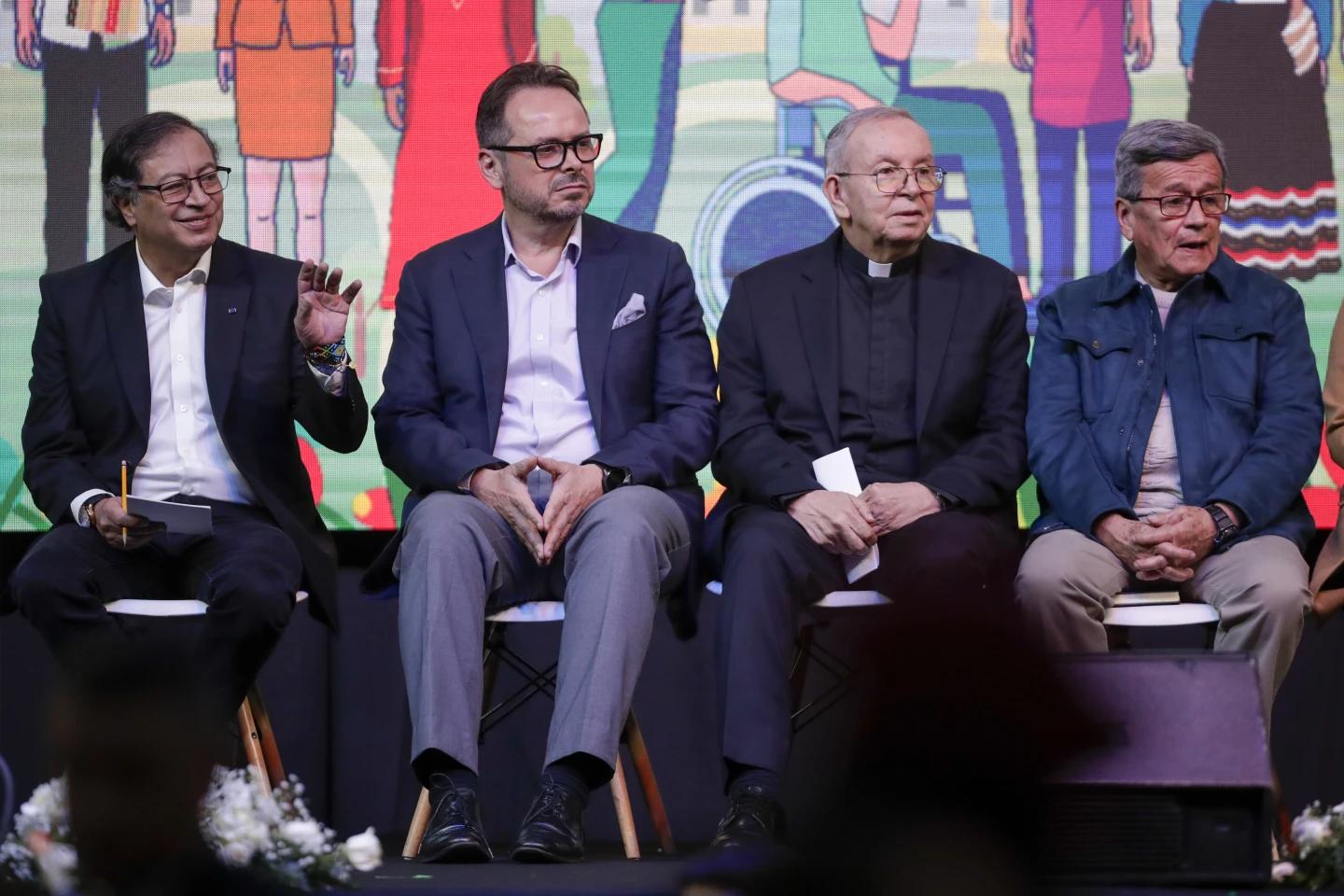SÃO PAULO, Brazil – As a ceasefire between Colombia’s government and the National Liberation Army guerilla force expires, the country’s Catholic church is taking an active role in attempting to restart long-stalled peace talks.
The current ceasefire, which ended Aug. 3, was brokered a year ago and has been the longest one ever established with the guerilla group, known by its Spanish acronym ELN. The organization is rumored to still be involved with illegal activities, such as extorting communities, and analysts fear it may want to continue perpetrating crimes.
On Aug. 2, the Catholic Church and the United Nations released a letter asking both parties to extend the ceasefire and get back to the negotiation table.
“As companions in the dialogue, we would like to put forward for your consideration the organization of an extraordinary meeting, with the dual objective of reactivating the negotiating table and renewing the ceasefire,” read the letter sent to Vera Grabe, the government’s delegation head, and to Pablo Beltran, ELN’s delegation head.
The authors – Carlos Ruiz Massieu Aguirre, special representative of the UN’s secretary-general, and Father Hector Fabio Henao, delegate for Church/State relations – suggest a technical extension of the ceasefire for a few weeks, during which an encounter could be prepared and all relevant points of the negotiation could be addressed.
“The goal is to resume a direct dialogue that corresponds to the expectations that Colombian society has placed on the negotiation table,” the document said.
Vera Grabe and Senator Iván Cepeda answered the letter hours later and affirmed that they agree with the suggestion of a technical extension of the ceasefire. The ELN hasn’t released any reaction.
The current peace talks began in November 2022 and proved to be fruitful on several levels, especially when they produced an unprecedented ceasefire for one year. But since the beginning of 2024 the process has been paralyzed, and no progress has been achieved over the past few months.
“One of the reasons why the talks have been frozen involves the Comuneros del Sur (“Community Members of the South”), an offshoot that declared itself to be independent from the ELN to negotiate with the government,” Henao told Crux.
The government agreed to engage in an autonomous negotiation with the Comuneros, something that led to internal divisions in the ELN and disturbed the peace talks.
“But the ELN’s central command has been pointing to other reasons,” Henao said.
In May, the guerrilla organization established four conditions in order to proceed with the negotiation. Besides the interruption of the talks with the Comuneros del Sur, the ELN demanded to be taken off the government’s list of organized armed groups, asked the government to activate a fund that will compensate the militants for ceasing kidnappings, and demanded the armed forces’ operations against them to stop.
“The current humanitarian situation is very complex in several regions, so it’s important to keep an atmosphere that can lead communities to live together peacefully,” Henao said.
For decades, many regions in the South American nation, especially in the rural dimension, have been attacked and suffered the impacts of the continuous violence in Colombia.
The ELN was established in 1964 and declares to be Marxist-Leninist. Left-wing Catholics have been very important in the formation of the guerrilla, which had among its initial commanders priests such as Camilo Torres and Manuel Pérez Martinez.
The guerrilla organization defines as its goal to promote a socialist revolution in Colombia. Part of its strategy is to wage a continuous, low-intensity guerrilla warfare against the State, taking villages and towns under its temporary control. It funds its activities with money generated with illicit activities, including drug trafficking, illegal mining, and kidnappings. Conflicts with armed forces many times lead to injured or dead peasants.
The ELN is considered to be a terrorist organization by a number of countries, including the United States.
Violent actions promoted by the group between June and July have been considered to be a breach of the ceasefire.
The Colombian bishops’ conference issued a letter earlier this week in which it also reinforced the need to keep dialoguing until a common solution can be found.
“Peace is built by demonstrating commitment to protection and respect for the population. Therefore, one of our efforts is to help generate the conditions so that a total ceasefire can be achieved, in urban and rural spaces,” the document said.
“We hope the armed attacks are not resumed, given their humanitarian impact on communities that have suffered for much time with their effects,” Henao said.













